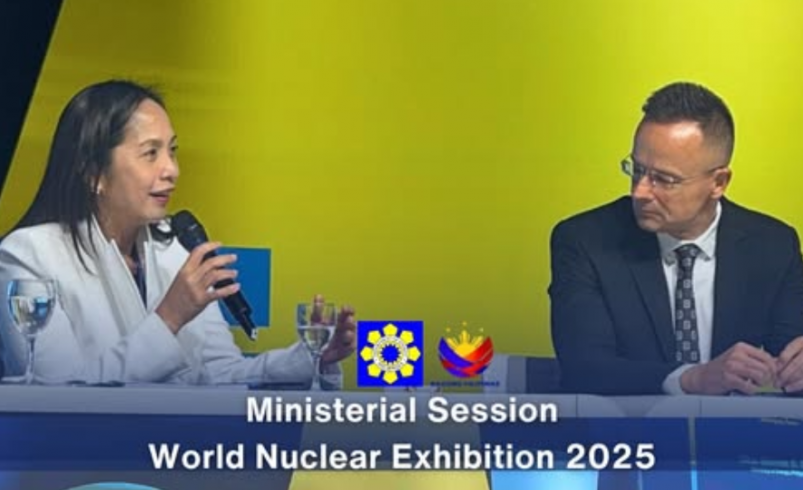Philippines showcases nuclear roadmap at Paris forum, reaffirms 2032 target
- November 6, 2025
- 0

Photo credit: DOE
The Philippines put its nuclear push on the global stage this week as Energy Secretary Sharon S. Garin reaffirmed the country’s 2032 target for integrating nuclear power into the energy mix during the Ministerial Session of the World Nuclear Exhibition (WNE) in Paris on November 4.
Garin said the Philippines is laying down the regulatory and institutional groundwork needed to responsibly enter the nuclear space, anchored on the newly enacted Republic Act No. 12305 or the Philippine National Nuclear Energy Safety Act. Signed by President Ferdinand R. Marcos Jr. on 18 September 2025, the law provides the country’s first comprehensive framework for the safe and peaceful use of
She added that the government expects to begin accepting nuclear power plant license applications by 2026 under PhilATOM — a milestone earlier announced but now underscored before the international nuclear community.
The DOE said Department Circular DC2025
In her WNE remarks, Garin emphasized the country’s continuing work with the International Atomic Energy Agency (IAEA) to strengthen readiness for nuclear development. The December 2024 Follow-up Integrated Nuclear Infrastructure Review (INIR) Mission commended progress in human resource development, radiation protection, radioactive waste management, and emergency preparedness. Complementary capacity-building workshops with the IAEA on nuclear project financing and global best practices also continue through the DOE and the Nuclear Energy Program Inter-Agency Committee (NEP-IAC).
Garin stressed that public confidence remains central to the roadmap, citing “growing public support reflected in surveys conducted in 2019 and 2024,” but also noting that “continued engagement with the public” is essential as the country advances its nuclear initiatives.
The Philippines is likewise deepening cooperation with the IAEA and other nuclear-embarking countries to strengthen technical and regulatory capabilities.
WNE, one of the world’s largest platforms for nuclear innovation and policy dialogue, enables the Philippines to benchmark global developments and expand strategic partnerships as it progresses toward its 2032 target.
How do you see nuclear energy shaping the future of the Philippines’ power mix? Share your thoughts.
Follow Power Philippines on Facebook and LinkedIn or join our Viber community for more updates.